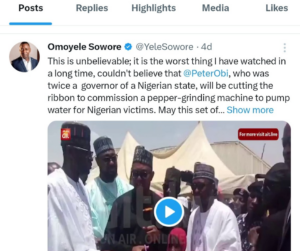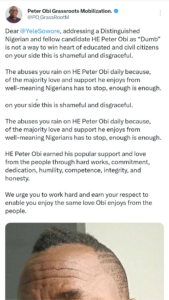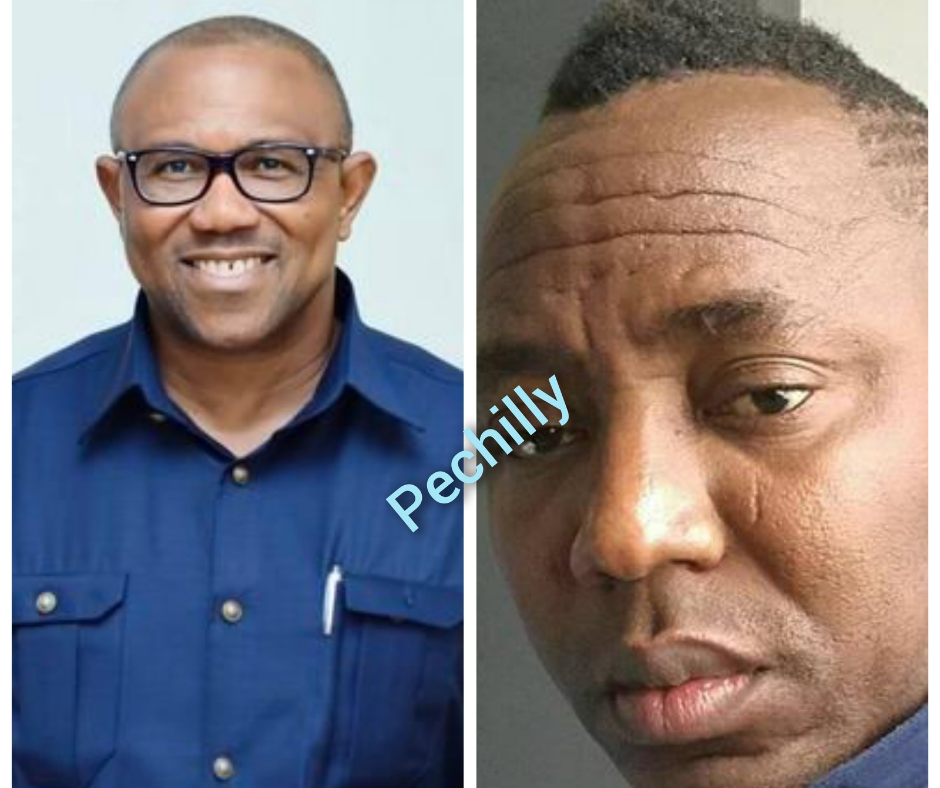By Karen James
In a recent Twitter exchange, former governor and vice-presidential candidate, Peter Obi, became the subject of a fiery dispute between his loyal fan base and controversial activist Yele Sowore. The verbal altercation erupted after Sowore criticized Obi’s involvement in commissioning a pepper-grinding machine as a means to provide water for Nigerian victims.

Sowore expressed his disbelief in a now-deleted tweet, branding the action as the worst thing he had witnessed in a long time. He further questioned how someone who had held two governorship positions in Nigeria could be reduced to such a tokenistic gesture. Sowore went on to criticize Obi’s generation of politicians, accusing them of deliberately spreading poverty among the population.

Responding to Sowore’s scathing remarks, devoted supporters of Peter Obi defended their leader and urged Sowore to adopt a more respectful approach when addressing distinguished individuals. They condemned Sowore’s use of derogatory terms to describe Obi and deemed it as a shameful and disgraceful display.
Obi’s fans defended the former governor’s character, attributing his popularity to his hard work, commitment, dedication, humility, competence, integrity, and honesty. They argued that his widespread support from well-meaning Nigerians was earned through merit, urging Sowore to work towards achieving a similar level of respect and admiration.
This heated exchange on social media highlights the wider divide within Nigerian politics, where differing opinions can quickly lead to intense clashes between supporters and critics. It also highlights the role of social media as an arena for public figures to engage with their followers and detractors.
Despite the differences, some analysts believe that healthy debates and discussions of this nature could contribute to a more vibrant political landscape, fostering productive dialogue and encouraging aspiring leaders to address the concerns of the electorate more effectively.
However, it is crucial for individuals to engage in dialogue respectfully and responsibly, ensuring that personal attacks and derogatory language are avoided. The aim should always be to promote constructive criticism and contribute to the betterment of society.
As the battle of words between Peter Obi’s fans and Yele Sowore continues, it remains to be seen whether this public exchange will have any long-lasting impact on the perception of these individuals within the wider Nigerian political sphere.

